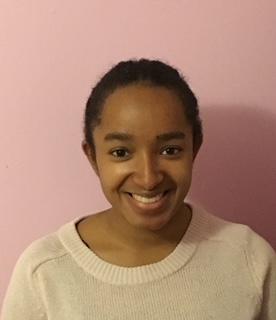How To Find the Right Writing Course for You
Guestpost by Savannah Jackson of Jericho Writers.
 Savannah Jackson is a Digital Content Assistant at Jericho Writers. She has a BA in English Literature and Creative Writing from the University of Warwick. In her free time, she writes poetry, practices yoga, and reads voraciously.
Savannah Jackson is a Digital Content Assistant at Jericho Writers. She has a BA in English Literature and Creative Writing from the University of Warwick. In her free time, she writes poetry, practices yoga, and reads voraciously.
Writing courses have become increasingly popular over recent years, as they are incredibly valuable resources. They offer guidance from experienced tutors who are often writers themselves; provide peer interaction, feedback, and a sense of community; boost your creativity; and enable you to learn about different approaches and techniques.
There are so many different writing courses available that it can be hard to find the one that’s right for you. In this post, I’ll outline the key things to consider when choosing a writing course, and hopefully, that’ll make the decision a little easier.
What to Look Out for in a Writing Course
There are lots of aspects to consider when finding the right writing course for you. Think about what you want to take away from your course experience and use that to help guide your decision. For instance, are you looking for a creative writing course or do you want to learn how to market yourself as an author?
Here are some of the key factors to contemplate when choosing a writing course.
Location
One of the most important things to consider is whether you want to attend a course that takes place online or in person. Do you want to experience face-to-face connection, have a regular place to visit, and the opportunity to look at physical copies of your peers’ work? Then an in-person course is probably the best fit for you. Whereas if you want a flexible schedule, the ability to be able to attend a course from the comfort of your own home, and a chance to connect with people from different cities/countries, then you may be better suited to an online course.
Genre and Form
It’s also important to think about what type of writing course you’re looking for. There are courses for specific genres (thriller, romance, horror) and forms (novels, screenplays, poetry); for writers at different levels (beginner, intermediate, experienced); and for different writing stages (the ideas/inspiration stage, the drafting stage, the editing stage). Some courses are more esoteric than others, so spend some time thinking about what matters most to you.
Cost
Another key thing to consider is cost. Writing courses are hugely beneficial and valuable, but it’s important to think about the cost of the writing courses you’re looking at and to find one that works for your budget. Set yourself a reasonable budget for attending a writing course and use that to help you filter through course options. Some courses also offer instalment plans and bursaries, so it might be worth looking into those too. If spending money on a writing course isn’t feasible at the moment, there are plenty of other ways you can improve your writing skills (blogs, books, beta readers etc).
Size
When choosing a writing course, it can also be helpful to consider the size of the group. Some courses are run regularly with smaller groups, while others are launched less frequently with larger groups. There are costs and benefits to both options, so think about what you want your experience to be like, and what kind of learning environment you most thrive in.
Duration
Another thing to consider is the duration of the course. Not so much in terms of the length of each session – though that is important too – but in terms of how long the course is running for. Some courses meet weekly for a few weeks (think brief refresher courses), while other more extensive courses run for as long as a year, so that experienced tutors can guide writers at greater depth over time. Think about how much time you have available, how much energy you have to focus on your writing right now, and the level of support/guidance/community you’re looking for.
Tutors
It’s also crucial to think about the tutors who are running the course. Do you want a course where the feedback is solely given by the tutor? Or would you prefer most of your feedback to come from your peers? Most courses utilise a combination of the two, and there are benefits to both, but it’s something to keep in mind.
It’s also helpful to consider the tutor’s experience. Are they writers themselves? Do they have the relevant expertise? For instance, if you’re doing an editing course, it’s important that the tutor is an editor or has some editorial experience. Similarly, if you’re doing a course that’s related to querying agents or crafting submissions packs, then it’s ideal if the tutor is an agent, or publisher, or has experience in those areas.
Finding your Writing Course
There are a myriad of writing courses available, and I hope this blogpost has helped you decide which course is the best fit for you. Good luck!
Image by Andrew Neel on Unsplash
Learn by doing:


